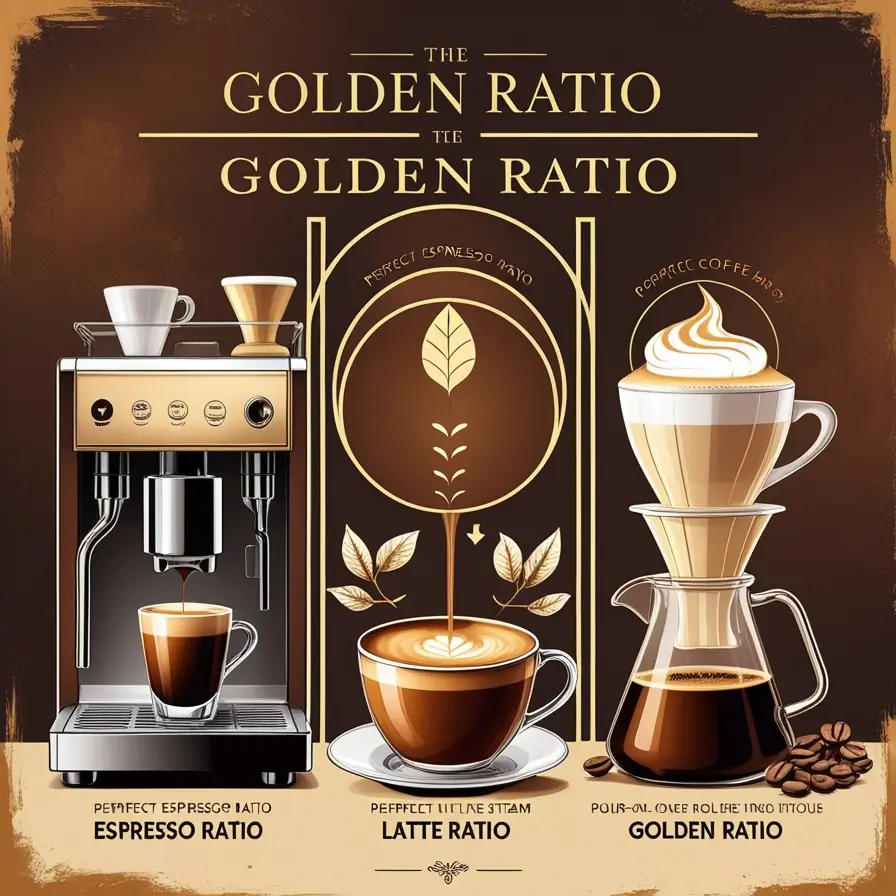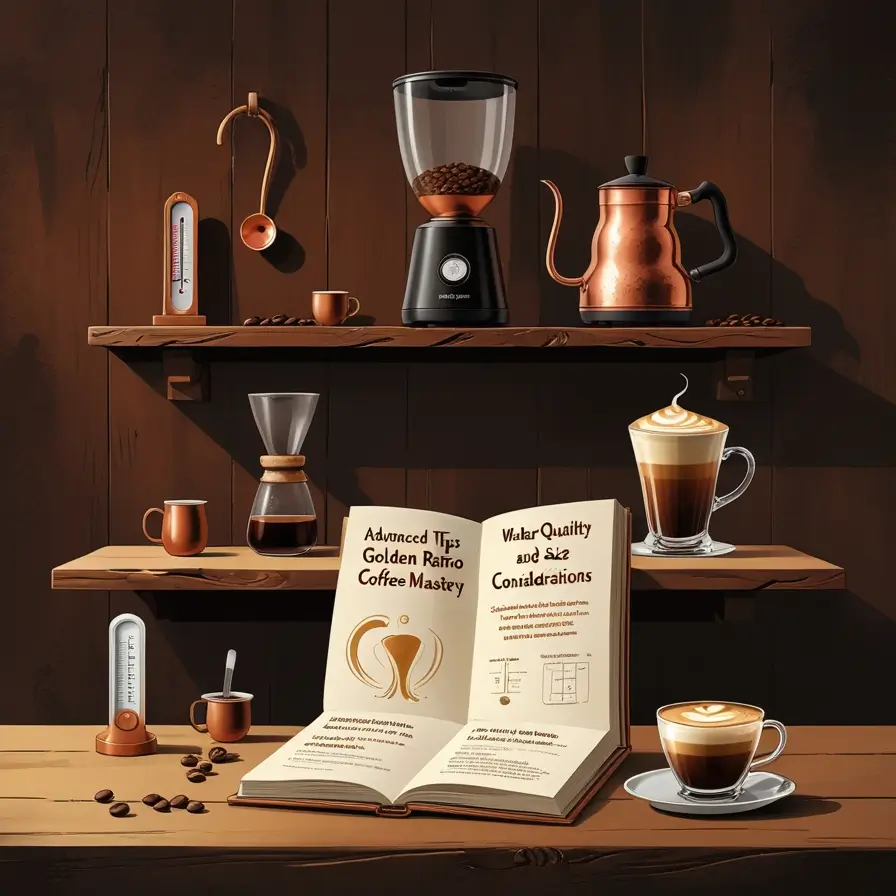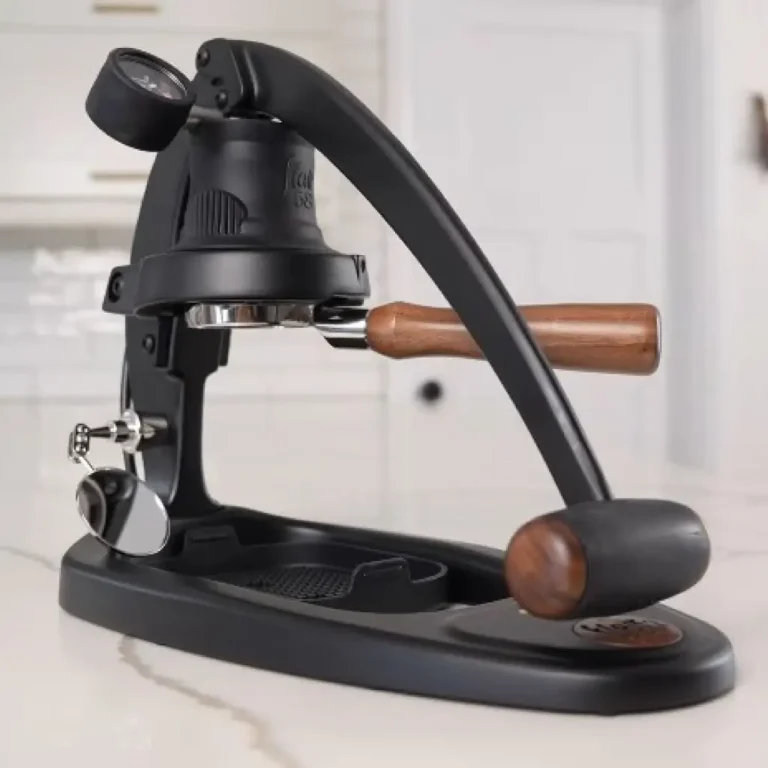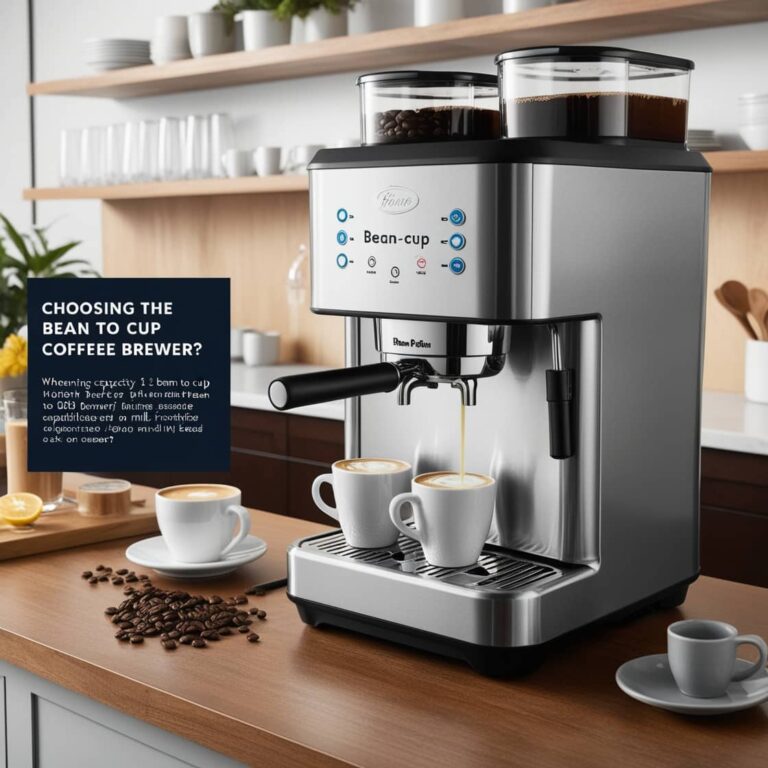The Golden Ratio Coffee: Perfect Cup Every Time 2025

Understanding the Coffee Golden Ratio Revolution
As a professional barista with over a decade of experience crafting the perfect cup, I can tell you that achieving consistently excellent coffee comes down to one fundamental principle: the golden ratio. This magical proportion between coffee and water has transformed how we approach brewing, moving beyond guesswork to embrace precision and consistency.
The golden ratio coffee method isn’t just another trend—it’s a scientifically backed approach that professional baristas and coffee enthusiasts swear by. In this comprehensive guide, we’ll explore the perfect coffee ratio that will elevate your daily brew from ordinary to extraordinary.
What is the Golden Ratio for Coffee?
The coffee golden rule, known in professional circles as the “golden cup ratio,” is a mathematical relationship between coffee grounds and water consistently producing optimal extraction. The standard golden ratio of coffee to water is 1:15 to 1:18; for every gram of coffee, you’ll use 15-18 grams (or milliliters) of water.
Breaking Down the Perfect Coffee Ratio
Let’s analyze why this ratio works so well:
– At 1:15, you get a stronger, more intense cup
– At 1:16.7 (often considered the ideal middle ground)
– At 1:18, you achieve a lighter, more delicate flavor profile
The Science Behind the Golden Cup Ratio
Understanding the perfect ratio for coffee requires a brief dive into extraction science. When water meets coffee grounds, it begins a complex dance of dissolving and carrying away the compounds that create your cup’s flavor profile. The golden ratio ensures:
1. Optimal saturation of coffee grounds
2. Proper extraction time
3. Balanced concentration of dissolved solids
Applying the Golden Ratio to Different Brewing Methods

Perfect Espresso Ratio
The perfect espresso ratio differs slightly from regular coffee, typically following a 1:2 ratio:
– 18g coffee: 36g espresso output
– 20g coffee: 40g espresso output
– 22g coffee: 44g espresso output
Perfect Latte Ratio
For the perfect latte ratio, build upon your espresso base:
1. Start with the golden ratio for espresso (1:2)
2. Add steamed milk at a 1:3:2 ratio (coffee:milk: foam)
3. Adjust based on preferred strength
Pour-Over Golden Ratio
When brewing pour-over coffee, the golden ratio coffee principles remain crucial:
– Use a 1:16 or 1:17 ratio
– Adjust grind size to medium-fine
– Control pour speed and pattern
Common Golden Ratio Coffee Measurements
For practical application, here are some common measurements using the golden ratio:
| Coffee (g) | Water (ml) | Yield | Strength |
|————|————|——–|———–|
| 15 | 250 | 1 cup | Medium |
| 21 | 350 | 12 oz | Medium |
| 30 | 500 | 16 oz | Medium |
Tools for Achieving the Perfect Coffee Ratio
To consistently achieve the golden ratio for coffee, you’ll need:
1. Digital scale (accuracy to 0.1g)
2. Timer
3. Appropriate grinder
4. Temperature-controlled kettle
5. Quality brewing device
Troubleshooting Common Issues
Even with the perfect ratio for coffee, issues can arise. Here’s how to address them:
Over-Extraction
– Symptom: Bitter, harsh taste
– Solution: Check water temperature and grind size
– Maintain strict adherence to golden ratio measurements
Under-Extraction
– Symptom: Sour, weak taste
– Solution: Verify water temperature and contact time
– Confirm golden cup ratio measurements
Advanced Tips for Golden Ratio Coffee Mastery

Water Quality and Temperature
The golden ratio coffee method works best when:
– Water temperature is between 195-205°F (90-96°C)
– Water is filtered and mineral-balanced
– Temperature remains stable throughout brewing
Grind Size Considerations
Adjust your grind size while maintaining the coffee golden rule:
– Espresso: Fine
– Pour-over: Medium-fine
– French Press: Coarse
The Impact of Coffee Origin on Ratios
Different coffee origins may require slight adjustments to the perfect coffee ratio:
Light Roasts
– Often benefit from a slightly higher ratio (1:16-1:17)
– Require higher temperature water
– Need longer extraction times
Dark Roasts
– Work well with lower ratios (1:15-1:16)
– Extract more easily
– Require slightly cooler water
Professional Tips for Consistency
As a barista, these are my top tips for maintaining consistency with the golden ratio coffee method:
1. Pre-weigh coffee doses
2. Use timer-based brewing protocols
3. Keep detailed brewing logs
4. Regular equipment maintenance
5. Quality control taste tests
The Role of Time in the Golden Ratio
While the perfect ratio for coffee is crucial, timing plays a vital role:
Brewing Times by Method
– Espresso: 25-30 seconds
– Pour-over: 2.5-3 minutes
– French Press: 4 minutes
– Cold Brew: 12-24 hours
Environmental Factors Affecting the Golden Ratio
Consider these variables when applying the coffee golden rule:
Altitude
– Higher altitudes require longer extraction times
– Water boils at lower temperatures
– May need ratio adjustments
Humidity
– Affects coffee ground moisture content
– Influences extraction speed
– May require grind size adjustments
Commercial Applications of the Golden Ratio
In café settings, the golden ratio coffee method ensures:
1. Consistency across baristas
2. Quality control standards
3. Customer satisfaction
4. Reduced waste
5. Training standardization
The Future of Coffee Ratios
The coffee industry continues to evolve, with new technologies and techniques emerging:
Emerging Trends
– AI-powered ratio calculations
– Real-time extraction monitoring
– Automated brewing systems
– Enhanced precision tools
Sustainability and the Golden Ratio
The perfect coffee ratio contributes to sustainability by:
1. Reducing coffee waste
2. Optimizing resource usage
3. Improving energy efficiency
4. Maximizing yield from quality beans
Creating Your Ratio Experiments
While the golden ratio for coffee provides an excellent baseline, experimentation can lead to personal preferences:
Experimentation Guidelines
1. Start with the standard golden cup ratio
2. Make single variable changes
3. Keep detailed notes
4. Trust your palate
5. Be methodical
Health Considerations and Ratios
The perfect ratio for coffee can affect caffeine content and acidity:
Caffeine Management
– Stronger ratios increase caffeine content
– Consider the timing of consumption
– Balance with water intake
Economic Benefits of the Golden Ratio
Implementing the coffee golden rule can lead to significant savings:
1. Reduced coffee waste
2. Consistent quality
3. Efficient resource use
4. Higher customer satisfaction
5. Better inventory management
Conclusion: Mastering the Golden Ratio
The journey to perfect coffee begins with understanding and implementing the golden ratio coffee method. Whether you’re a home enthusiast or a professional barista, these principles provide the foundation for exceptional coffee brewing. Remember that while the perfect coffee ratio is essential, it’s just one component of the complex art and science of coffee preparation.
Key Takeaways
– Start with the 1:16.7 golden ratio
– Adjust based on the brewing method
– Consider environmental factors
– Maintain consistency in measurements
– Trust your palate while respecting the rules
By following these guidelines and understanding the principles behind the golden ratio of coffee, you’re well on your way to consistently brewing exceptional coffee that rivals any café. Remember that practice and attention to detail are your best tools in mastering the perfect ratio for coffee.






